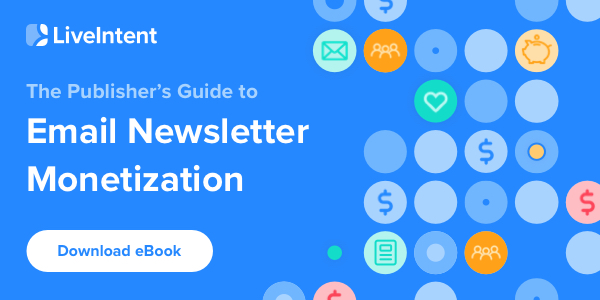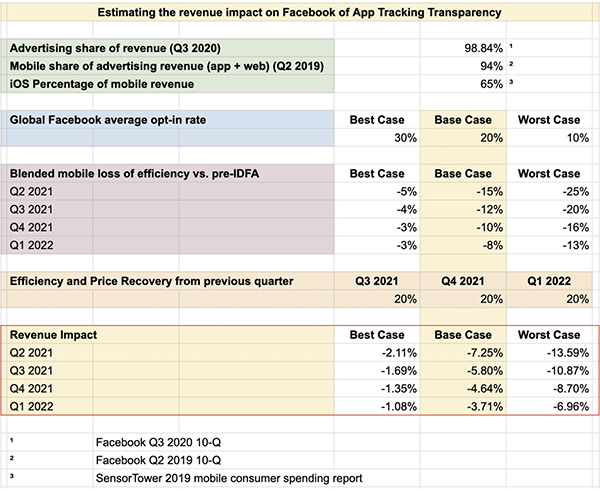 |
|||||||||||||||
|
|||||||||||||||
| Another DSP Bites the Dust |
| Publishers haven't been the only casualties of the Pandemic. Ad Tech companies have also taken their fair share of the beating. For mobile DSP Pocketmath, the tragedy has been twofold. "As the programmatic advertising ecosystem evolves and becomes increasingly efficient, it’s also becoming more consolidated, and rapidly so," shares Mediavine CEO and Co-Founder Eric Hochberger. The downside of that consolidation is that some companies will be crowded out. Reports suggest that PocketMath started slowing down payments in September and Pocketmath co-founder and executive chairman Eric Tucker confirmed to Business Insider that the company was ceasing operations after trying to sell. Adtech firms Smaato and Pulsepoint have filed civil suits against Pocketmath for unpaid bills. |
| If the news that Pocketmath is closing its doors is bringing up feelings of Sizmek déjà vu, it very well should. What happens when DSPs dissolve, is a domino effect with the SSP left holding the bag, having to make the tough decision between taking an L on those lost payments they already fronted publishers or instead demanding clawbacks. We recently spoke with publishers about their need for more financial transparency from their ad tech partners. Pubs are asking SSPs to do a better job of vetting DSPs so that clawbacks and sequential liability won’t even be an issue—and to turn them off from bidding in the exchange once they've been identified as a risk. |
| Make It Rain With Email Newsletters | ||
 |
||
| Google’s plan to sunset third-party cookies is all anyone in publishing and advertising can talk about these days. But, who can blame us? After all, the change will fundamentally alter the digital landscape. Publishers must brace for impact as revenue is bound to be affected in the wake of the cookiepocalypse. Pubs can prepare in two ways: by diversifying revenue streams and expanding their audiences. Luckily, publishers can do both through a single channel—email newsletters. |
||
| Email newsletters create a value exchange between publishers and audiences. A reader provides their email addresses and opts into a newsletter of their choice, and in return a publisher delivers content. To access the content, however, readers must be logged-in, no matter the device. This is where an email newsletter goes from distribution channel to revenue source. Publishers can place ad slots into an email newsletter and offer advertisers the opportunity to reach audiences in the personalized, addressable (and cookieless) environment that is their email newsletter. Et Voila—a new revenue source! Email newsletters present an opportunity for publishers to not only monetize their content but also grow their audiences and first-party footprint. Publishers can advertise subscriptions, products, or offerings on other publisher newsletters with similar audiences to their own and suppress existing audiences by using their first-party data. With this approach, publishers can continually expand their reach and remain competitive in a new uncertain world. |
||
|
||
 |
| Just How Much Will Apple's Privacy Changes Cost? |

Image sourced from Mobile Dev Memo
|
| Facebook hasn't been crying over Apple's Privacy changes for naught? There will be a severe impact to Big Blue's revenue, as well as to the revenue of its partners. Back in August Facebook warned its advertisers about the reduced ability to target audiences under Apple's new privacy changes, indicating to publishers that the revenue they generate through Facebook Audience Network (FAN) could drop by more than half. And now companies like Bumble and Playtika are calling out the tragedy of these IDFA changes in their S-1 filings, saying that the updates could compromise the future of their businesses. Along with the increased cost of getting users to opt-in (Bumble expects only 0-20% of app users to opt-in), will come a limited ability to target users. In other words, the privacy changes are a risk to these businesses' IPOs. User acquisition costs are definitely going to be a major problem for anyone with a mobile app, but in their S-1, Bumble even mentioned that if they were no longer able to target ads and performance marketing through Facebook then their user acquisition and revenue stream would be adversely affected. Up until now, we had only guesstimates of how severely Facebook revenue would be impacted. Eric Seufert of Mobile Dev Memo has gone a step further with a full-on analysis of the revenue impact. |
| Apple's IDFA changes are going to be harmful to businesses across the board, whether we're talking about user acquisition costs or the ability to target users it's going to impact everyone. But the entire mobile app ad ecosystem is being undermined. This isn't only an issue for Facebook, as Seufert calls out in his analysis. "Google and other ad platforms face nearly equivalent exposure," he says. As one Twitter user tweeted, "A lot of the DSP's are going to be in deep trouble with no IDFA tracking. And they weren't doing very well with it...." Maybe in the end the move away from targeted advertising will turn out well for publishers. We think, initially, probably not. |
| Around the Water Cooler |
| Home Depot and Omnicom Investors Ask the Companies to Steer Ads Away From Misinformation (The New York Times) Forbes Launches Massive Newsletter Platform Giving Journos 50/50 Split (Axios) YouTube No Longer Accepting Third-Party Pixels (AdExchanger) Time Spent With Ad-Supported Media Hits All-Time Low (MediaPost) |
 |
||
|
||
 |
||
|
||





